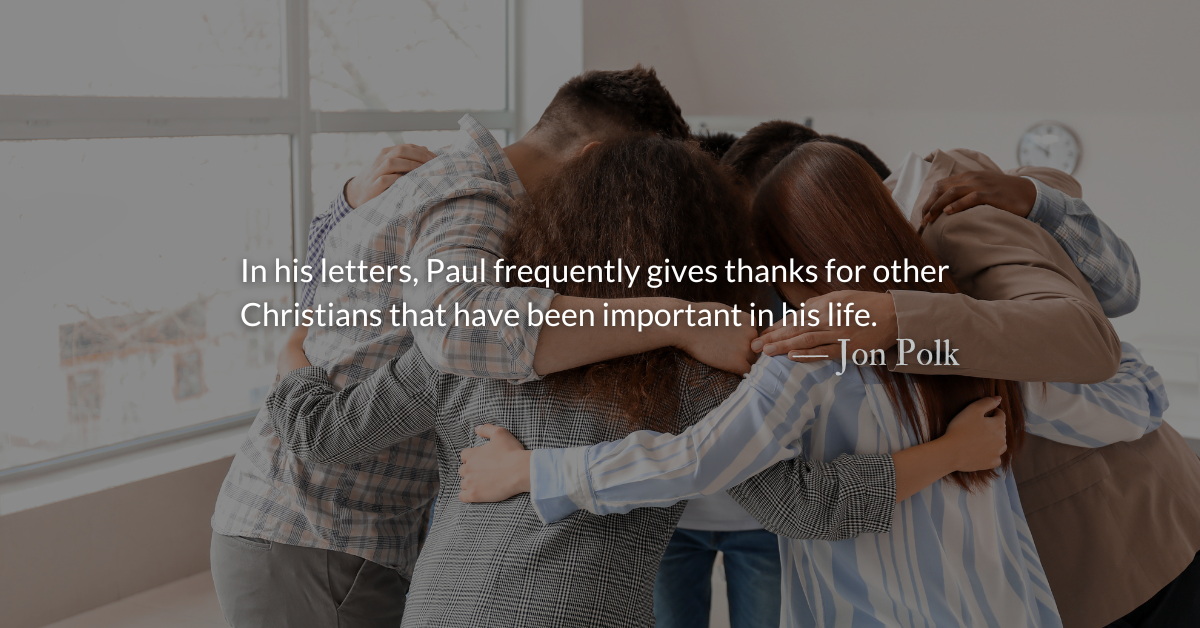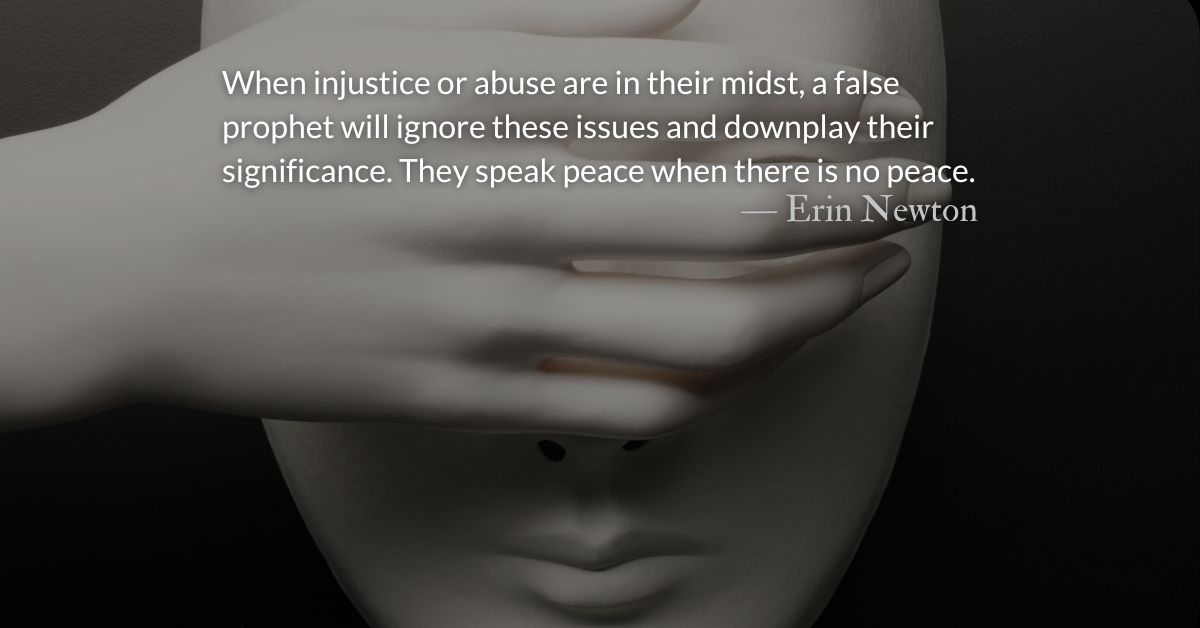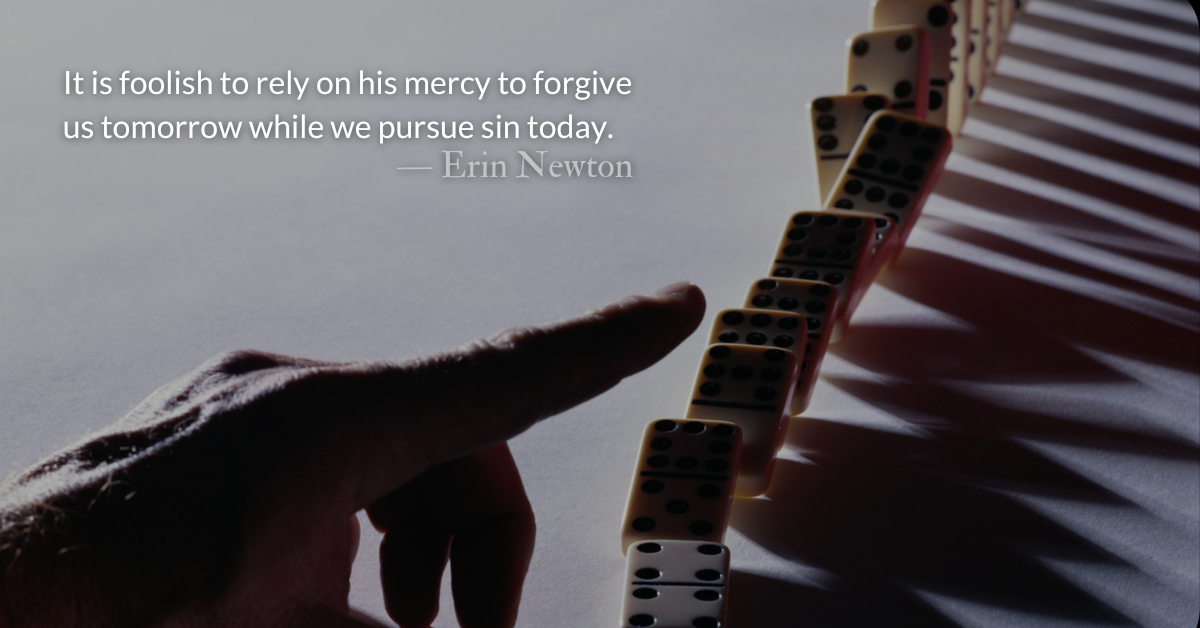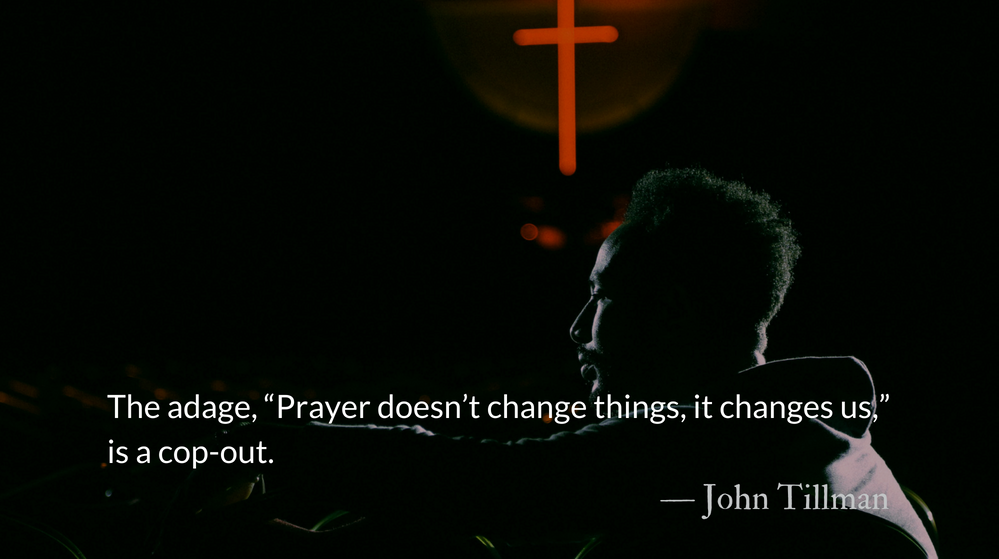Scripture Focus: Philippians 4.2-7
2 I plead with Euodia and I plead with Syntyche to be of the same mind in the Lord. 3 Yes, and I ask you, my true companion, help these women since they have contended at my side in the cause of the gospel, along with Clement and the rest of my co-workers.
4 Rejoice in the Lord always. I will say it again: Rejoice! 5 Let your gentleness be evident to all. The Lord is near. 6 Do not be anxious about anything, but in every situation, by prayer and petition, with thanksgiving, present your requests to God. 7 And the peace of God, which transcends all understanding, will guard your hearts and your minds in Christ Jesus.
Reflection: Mysterious Plea, Mysterious Peace
By John Tillman
The church at Philippi was one with which Paul had a special relationship. The letter to them is joyous, intimate, and loving. At Philippi, Paul started the first church on the European continent. Lydia hosted this congregation and was its founding and leading member. The Philippian jailer and his family worshiped here. The former demon-possessed slave girl certainly would have been found there as well.
As Philippians enters its closing chapter, Paul and Timothy make a plea for unity to two feuding leaders. Who are these people, so influential that their disagreement is consequential enough, influential enough, that Paul and Timothy would call them out by name? Euodia and Syntyche—two co-workers who contended for the gospel at Paul’s side, now were contending against each other.
Many theorize about the nature of the conflict, but if Paul did not think it worth inclusion, we shouldn’t waste too much time theorizing. (Even if nerding out about those things can be entertaining…) If we trust God’s word, and we do, we trust that its omissions are not errors any more than its inclusions are.
What do we learn from this mysterious plea for unity?
1- Those who care passionately about the gospel can still disagree.
2- Disagreements don’t mean one’s salvation is in doubt.
3- Disagreements can be healthy, as “iron sharpens iron.” (Proverbs 27.17) We may learn better why we believe what we believe when we are challenged by differing interpretations.
4- Disagreements can become damaging internally (inside the church) and externally (in the wider world).
Wielded carelessly, iron breaks iron rather than sharpening it, and unhealthy disagreements flavor the gospel with strife rather than peace.
We certainly could use some unity in Christian circles today. Factions of evangelicalism seem constantly to be at one another’s throats rather than “greeting with a holy kiss.” (Romans 16.16) Some misuse scripture to normalize cruel words, mockery, and threats as “Jesus-like.” Our social media-driven world thrives on conflict but the gospel brings peace.
Rather than pursue conflict shaped by the world’s methods, let us keep reading Paul’s path to peace. Paul’s next words after issuing his challenge for unity are about rejoicing, gentleness, and overcoming anxiety through prayer. The result of this process will be peace, and not just between Euodia and Syntyche, but for us as well. The gospel provides mysterious peace for you and me that surpasses understanding.
Divine Hours Prayer: The Greeting
Show me your ways, O Lord, and teach me your paths.
Lead me in your truth and teach me, for you are the God of my salvation; in you have I trusted all the day long. — Psalm 25.34
– From The Divine Hours: Prayers for Summertime by Phyllis Tickle.
Today’s Readings
Ezekiel 17 (Listen 4:26)
Philippians 4 (Listen 3:20)
Read more about The Thriving Tree
Jesus, the king planted by God upon Zion, is the tree that will thrive, bringing all the birds to his shade.
Read more about The Step After Surrender
A life that has been poured forth to Him must find its crown, its completion, in being poured forth for man











